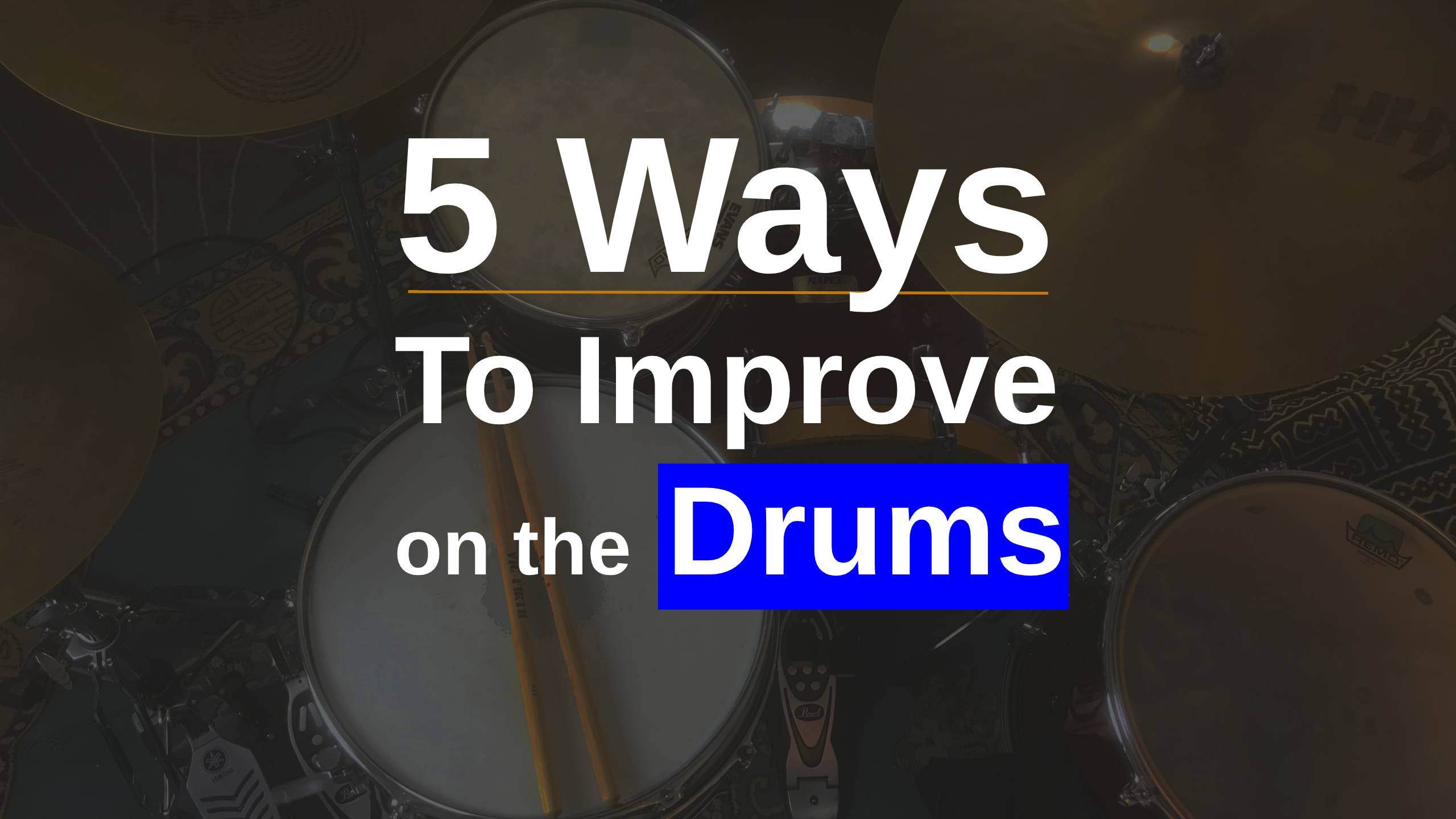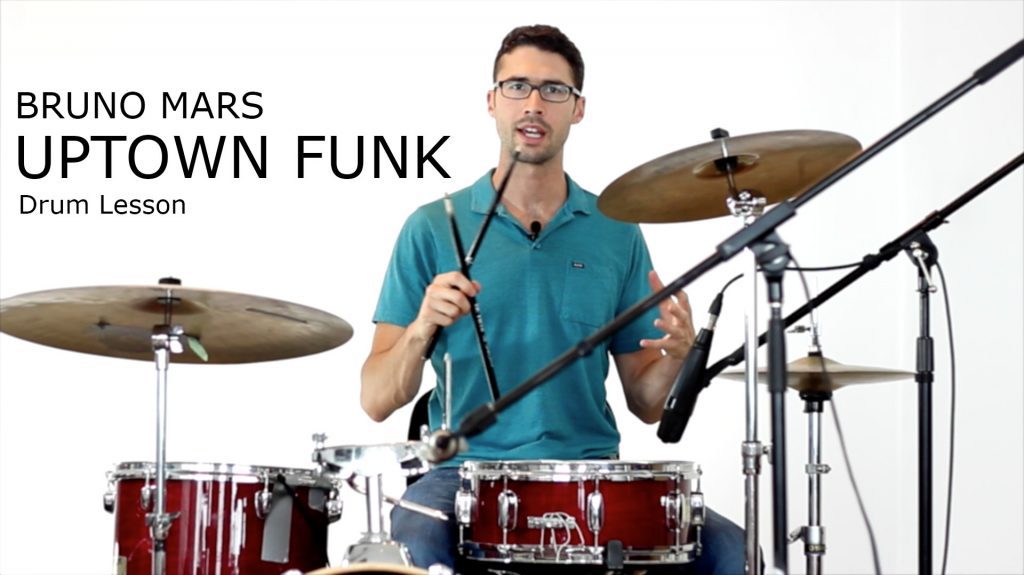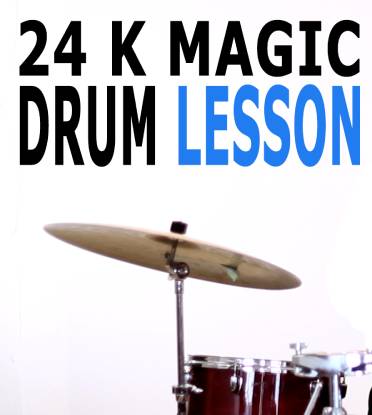1: Set achievable goals
How to improve on drums tip #1: Set achievable goals that you can work on every time you go to the practise room. A good goal might be to master a particular song and then create a YouTube video. It could also be to make a video of a certain rudiment that you are working on and then reworking it until you’re happy with it. Whatever it is, by setting specific goals and then having a way to monitor your progress you really improve and start to feel better about your drumming.
*The challenge is to pick the right goal for you level of playing. The goal should be just outside your comfort zone, so that it’s achievable yet will challenge you and push you to grow.
2: Each day try to build one perfect “chunk”
This is a tip from author Daniel Coyle’s “The Little Book of Talent: 52 tips for improving your skills”. The best way to improve your drumming skills is to use a technique called “chunking.”
Chunking a Song
The best way to learn a tune is to first identify the different parts. Like the intro, the verse, the chorus, the bridge and so on. When you practise, zero in on one part at a time. You can also break each part into even smaller chunks, like the first 2 beats of a challenging fill. Don’t forget that it can take a lot of time to master a song. It often takes months or even years. Songs that take a long time to learn are often the ones that offer the biggest rewards of improvement.
Chunking your Drum Technique
You can also think of chunking in terms of your technique. When you play the drums, you are using fingers, wrists, forearms, elbows, and shoulders. To improve your technique, you need exercises to train these parts (or chunks) of your body. Each time you practise, your aim should be to perfect one of these “chunks” in your technique. A good teacher can help you identify the right sequence of chunks so you can perfect things in the right order. You can take a look at my Moeller Technique Online Course for mastering your technique.
3:Use a practise journal
World class performers use a practise journal. Have you seen Free Solo? In a Nutshell, Alex Honnold achieves the impossible by climbing El Capitan… without ropes. People often brush him off as just being crazy, but when you watch this documentary, you can’t help but be impressed by his utter dedication to the art of climbing. After each climbing day, Alex Honnold writes down the ins and outs of each movement that he needs to master in order to successfully climb the wall.
When thinking about how to improve on drums, make a habit of writing down the things that you notice in your practise session. For example, “when I relaxed my wrist, and brought my forearm up, the paradiddle started to flow.” The next time you practise, start by reviewing the notes from your previous practise session and make sure to start where you left off.
How to improve on drums tip #4: Give yourself feedback when you practise
One of the most important thins to learn for how to improve on drums is to develop more awareness of your playing. One of the best ways do this is videotape yourself practising. Once you’ve learnt a pattern or a song to a sufficient degree, setup a video camera, hit record, then watch it back. I know this can be hard to do. First of all, it takes time away from your practise to set up the camera. Worse, you’re reminded of the imperfection of your playing! And this can be a tough pill to swallow. It certainly is for me sometimes, but once you get over this, you can really start to improve.
I believe that everyone can identify quality in art and drumming. We tend to think that only certain professionals know what’s right or wrong, but in reality, we all have an innate sense of what looks and sounds good. By videotaping yourself, you’ll see first hand what you like and don’t like about your playing. Once you videotape yourself the first time, don’t stop there. Analyze the video, then make adjustments. For example, you might notice that your arms are stiff and don’t move fluidly when you play. Based on that awareness you can practise incorporating bigger movements (it helps to have a strong foundation in drumming technique). Then videotape yourself again and see if you like it better. Don’t stop doing this until you look back and think, “yes I’m happy with this.”
5: Find a great teacher
Choose a teacher that will inspire you and help you move forward. Ultimately a good teacher provides you with the right exercises and provides valuable feedback. They will watch you play and suggest ways for you to adjust and improve certain aspects of your drumming. There should be a clear and measurable sense of progress. Beware that there are a lot of bad teachers. Just because a drummer is a great player doesn’t mean they are a good teacher.
If you’d like study with me, write me a message and we can discuss ways to help you improve your drumming skills.
Elijah is a university-educated drummer with extensive experience for both teaching and musical performance. Since completing his Bachelor of Music degree at Concordia University in 2010, he has played music across each province in Canada and in more than 20 countries around the world. He is also the founder of musiprof.com, an online resource that allows students to find great teachers in Montreal. For information about private lessons at his studio in Montreal or for lessons on Skype visit: Elijah Drums
I’m curious, what have been the best ways for you to improve your drumming skills?
[vivafbcomment]






